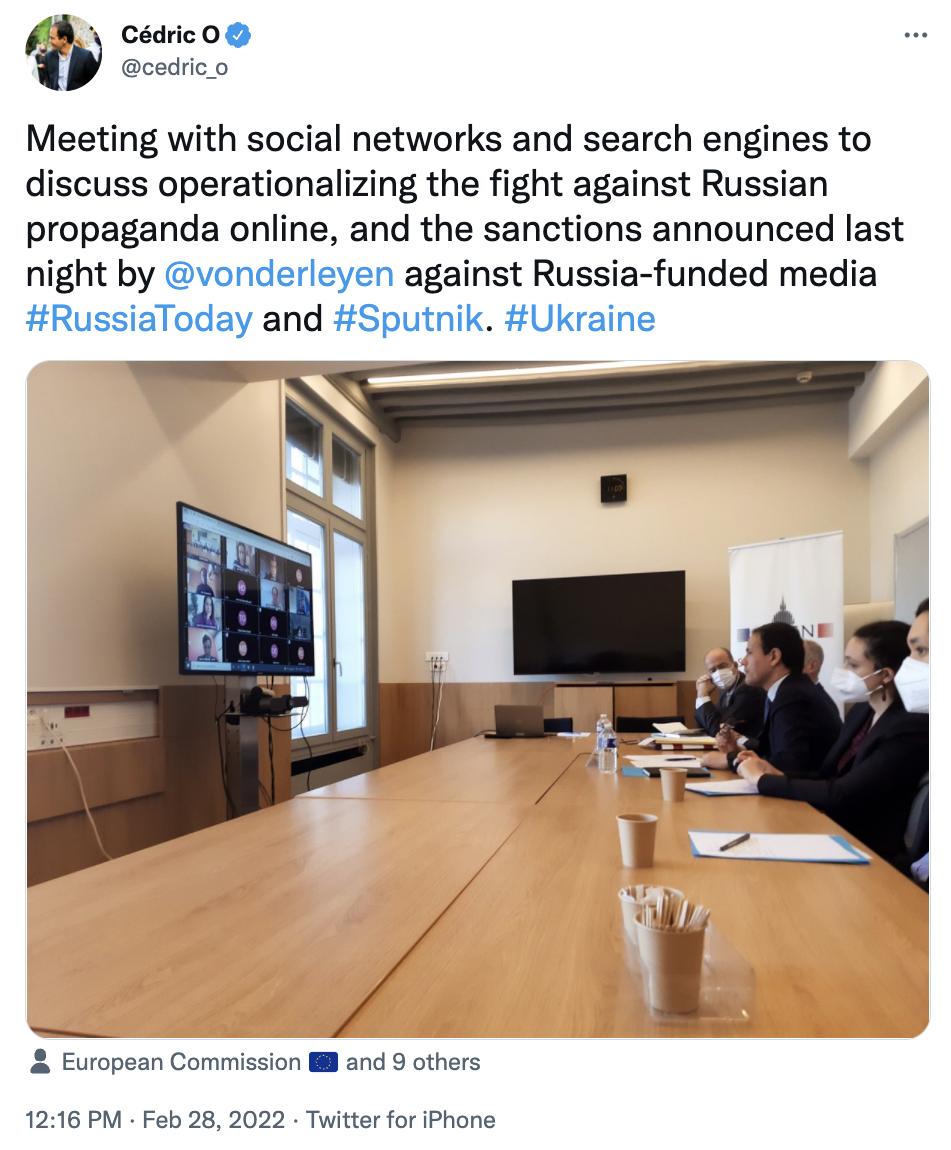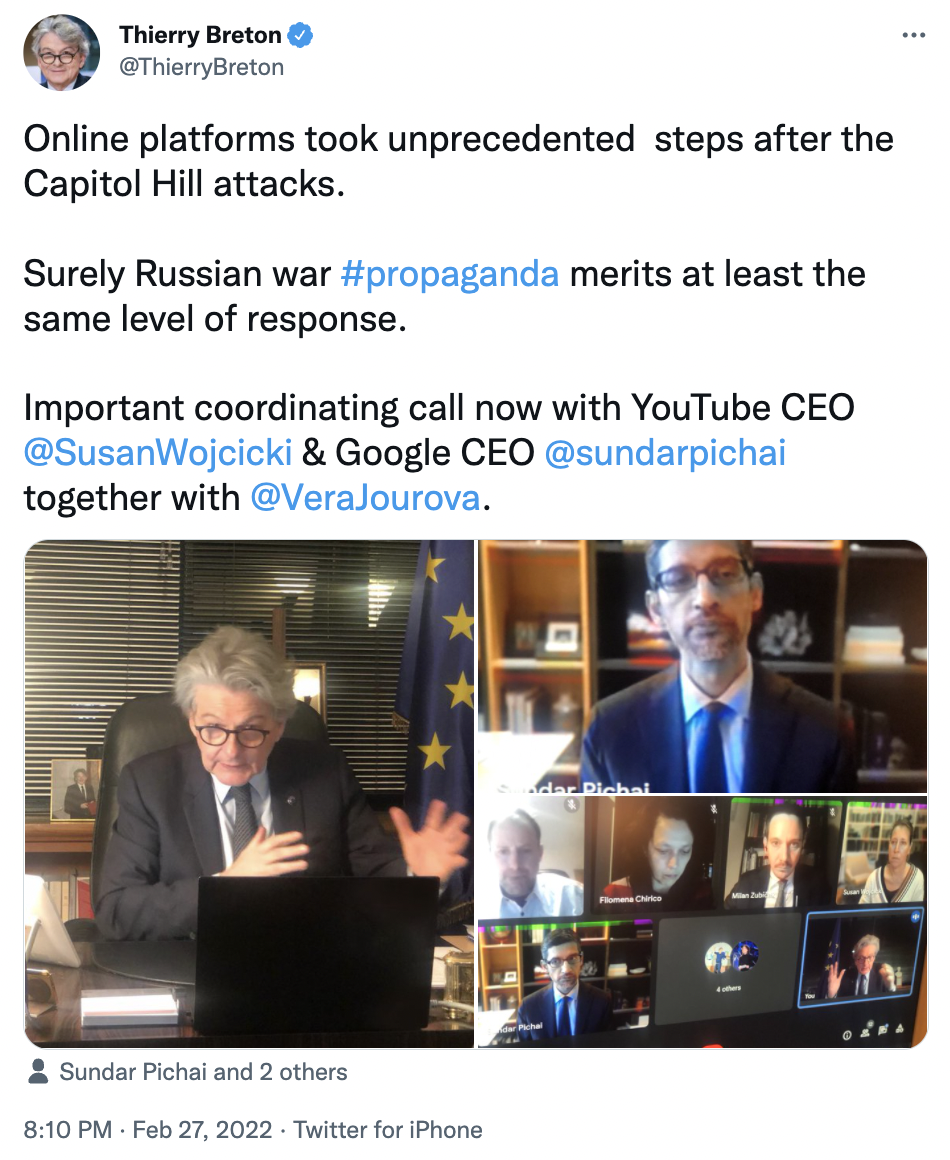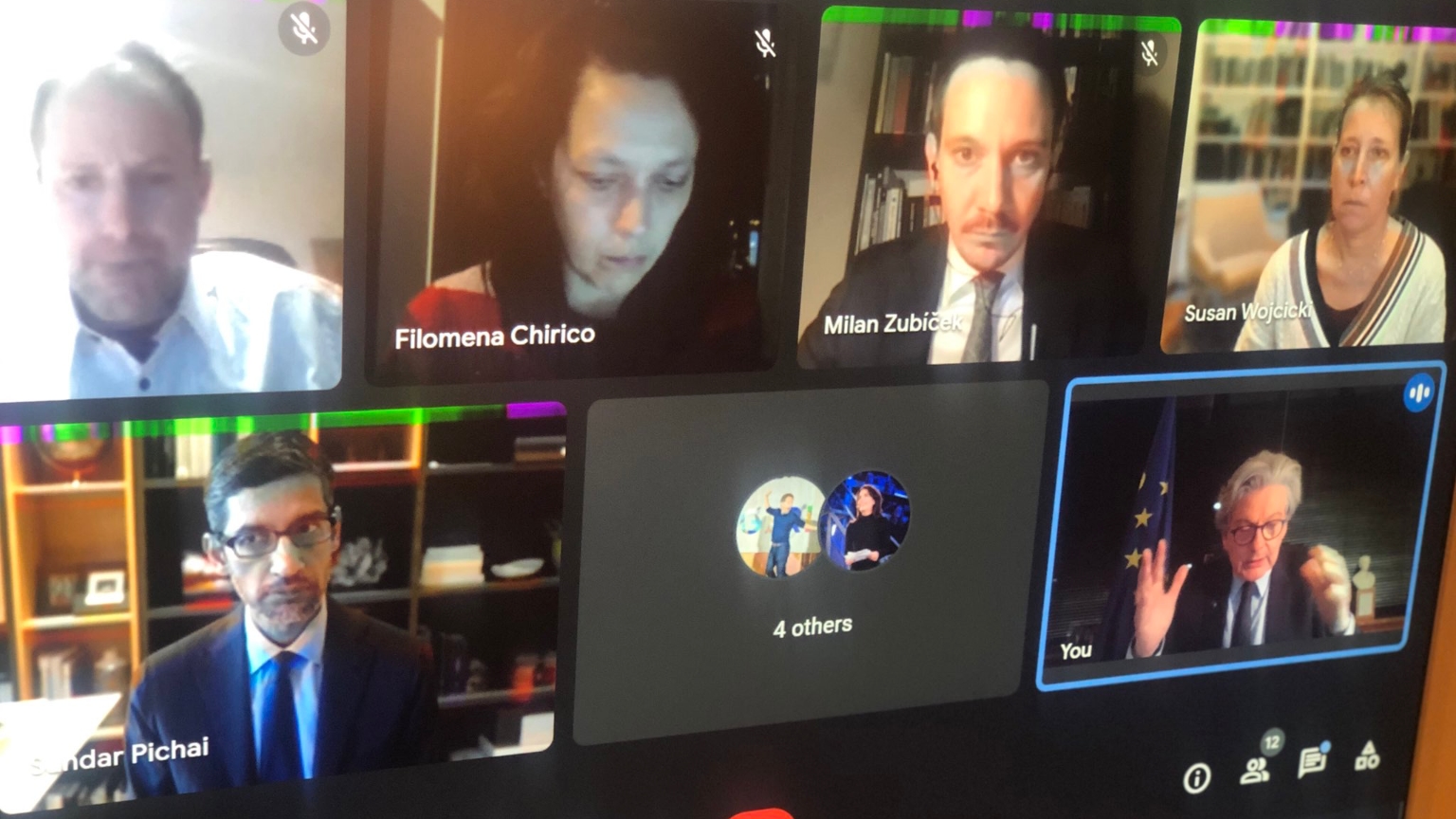High ranking officials from Ukraine, France, Estonia, Latvia, Poland, Lithuania, and the European Commission are pushing Big Tech platforms to crack down on “illegal content and disinformation,” deplatform Russian state media, ban Russian and Belarusian government officials, and more after Russia’s invasion of Ukraine.
In a joint letter that was published today, Estonia’s Prime Minister Kaja Kallas, Latvia’s Prime Minister Krišjānis Kariņš, Lithuania’s Prime Minister Ingrida Šimonytė, and Poland’s Prime Minister Mateusz Morawiecki wrote to Twitter CEO Parag Agrawal, Google CEO Sundar Pichai, YouTube CEO Susan Wojcicki, and Facebook CEO Mark Zuckerberg and urged them to take action against Russia’s “massive disinformation campaign” by taking seven “immediate steps:”
- “Pro-actively suspend accounts engaged in denying, glorifying or justifying wars of aggression, war crimes and crimes against humanity.”
- “Suspend the official accounts of Russian and Belarusian government institutions, state-controlled media as well as personal accounts of these countries’ leadership and their close associates, that consistently disseminate disinformation about situation in Ukraine.”
- “Comply with the restrictions introduced by several national regulators against Russian state-controlled media and prevent them from using your services to circumvent these restrictions.”
- “Engage with local fact-checking initiatives to find volunteers who could help to reinforce content monitoring, especially in Russian and Ukrainian languages, to quickly address inauthentic behavior, illegal content and disinformation.”
- “Immediately take measures, including adjusting your search and recommendation algorithms, to help users find trustworthy information on the war in Ukraine and to inform users exposed to disinformation.”
- “Fully and immediately demonetize all accounts – purveyors of disinformation controlled by the Russian and Belarusian governments.”
- “Resist the pressure from the Russian government to censor or restrict access to your platforms on Russia’s territory for Russian citizens, civil society and independent media.”
We obtained a copy of the full joint letter for you here.
Cédric O, France’s Secretary of State for the Digital Transition and Electronic Communications, also announced that he had spoken with YouTube CEO Susan Wojcicki and met with social networks and search engines to “discuss operationalizing the fight against Russian propaganda online” and the European Union’s recently announced ban on Russian state media.

Additionally, Thierry Breton, European Commissioner for Internal Market, and Věra Jourová, Vice President for Values and Transparency the European Commission met with the CEOs of Google and YouTube yesterday.
In a tweet about the meeting, Breton noted that “online platforms took unprecedented steps” after the January 6 storming of the US Capitol and insisted that “Russian war #propaganda merits at least the same level of response.”

Ukraine’s Vice Prime Minister and Minister of Digital Transformation, Mykhailo Fedorov, has echoed these calls and urged several tech platforms and services, including Apple’s App Store, all of Google’s products and services, Facebook, Instagram, PayPal, Netflix, Cloudflare, and the messaging app Viber, to pull their services from Russia.
These calls follow Big Tech platforms already cutting service to, blocking, and demonetizing some Russian state media outlets.
The Russian government has also been censoring Facebook and Twitter, adding “misinformation” labels to its Yandex search engine, and ordering its media outlets to only use official Russian sources when covering news about its invasion of Ukraine.
While governments are pushing for more censorship, Twitter has already admitted that its increased censorship of content related to Russia’s Ukraine invasion has resulted in posts documenting the invasion being censored “in error.”
Free speech advocates have also warned about the consequences of this urge to censor tech platforms following Russia’s invasion of Ukraine.
“I very much sympathize with the instinct [to block the App Store] but wonder how cutting off russian citizens’ access to the app store would affect their ability to communicate, protest, organize, use VPNs,” said David Kaye, a clinical professor of law at the University of California, Irvine and a former United Nations Special Rapporteur.
“I think it’s an important and useful thing that we have unfiltered access to the speech of our enemies,” Jameel Jaffer, Director of the Knight First Amendment Institute, tweeted in response to ban Russian government officials from Big Tech platforms. “I want to know what Putin is saying, not just what the US government and the US media say Putin is saying. (Still need a translator, unfortunately.)”













